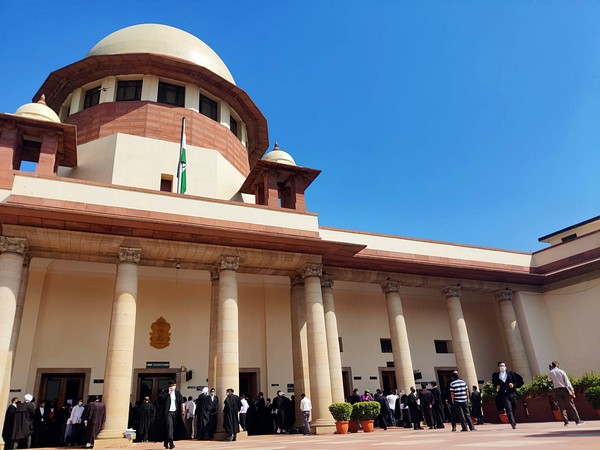SC dismisses plea of journalist Rana Ayyub challenging summons by Ghaziabad court in money laundering case

- Country:
- India
The Supreme Court on Tuesday dismissed journalist Rana Ayyub's plea challenging summons by the Ghaziabad special court in a money laundering case, leaving it open for her to raise the issues before the trial court.
A bench of Justices V Ramasubramanian and J B Pardiwala allowed Ayyub to raise the issue of jurisdiction before the trial court, saying it is a question of evidence.
Justice V Ramasubramanian, who pronounced the verdict on behalf of the bench referred to section 3 of the Prevention of Money Laundering Act (PMLA) and said Navi Mumbai, where the account is, is said to be the place where the proceeds of crime have reached.
''The question as to whether any one or more of the activities (under section 3 of the PMLA) have taken place and the question of fact and place has to be decided based on evidence. Therefore, we leave it open to the petitioner to raise these issues before the trial court. Writ petition shall stand dismissed'', he said.
According to Section 3 of PMLA, ''Whosoever directly or indirectly attempts to indulge or knowingly assists or knowingly is a party or is actually involved in any process or activity connected with the proceeds of crime and projecting it as untainted property shall be guilty of offence of money-laundering''.
On January 31, the top court had reserved its verdict on Ayyub's plea.
In her writ petition, Ayyub has sought quashing of the proceedings initiated by the ED in Ghaziabad citing lack of jurisdiction as the alleged offence of money laundering occurred in Mumbai.
During the hearing of the case, advocate Vrinda Grover, appearing for Ayyub had submitted, ''Can her personal liberty be deprived by a procedure not authorised by law?'' She had submitted that the Ghaziabad special court has no jurisdiction to try the offence as the alleged act is said to have been committed in Navi Mumbai.
Grover said the Enforcement Directorate (ED) has attached the journalist's personal bank account in a bank at Navi Mumbai in which around Rs 1 crore was lying.
Solicitor General Tushar Mehta, who has appeared for the ED had contended that the prosecution complaint has been filed in the Ghaziabad court by the probe agency as part of the cause of action had arisen in Uttar Pradesh, where a lot of people, including from Ghaziabad, contributed to her crowdfunding campaign.
He had said the money laundering offence is not an independent offence and is always connected to a scheduled offence for which an FIR was lodged in Indirapuram police station of Ghaziabad.
Mehta had said that arguments advanced by the counsel for Ayyub is that if a person chose to launder money in Singapore or Thiruvananthapuram, then the agency has to go there and lodge a case.
''Sorry, this is not the scheme,'' he said, adding that Ayyub raised funds through online platform ‘Ketto’ in the name of helping slum dwellers, COVID-19 patients and people of Assam affected by floods which resulted in the collection of Rs 1 crore, out of which Rs 50 lakh was fixed deposited in her personal account.
He said, ''Money was shown by fake bills, groceries, among others, and was used for personal luxury items and consumption.'' On November 29 last year, the special PMLA court in Ghaziabad had taken cognisance of the prosecution complaint (charge sheet) filed by the ED and summoned Ayyub.
The special court had said Ayyub's alleged crime involves taking money illegally from the general public in the name of charity via Ketto -- an online crowdfunding platform -- in three campaigns, without any approval, raising a huge sum in the bank account of her sister and father, and transferring it into her own bank account which was not used for the intended purpose.
On October 12 last year, the ED had filed a charge sheet against Ayyub, accusing her of cheating the public and using Rs 2.69 crore she got in charity for creating personal assets, and also violating the foreign contribution law.
The campaigns, it had claimed, were meant to raise funds for slum dwellers and farmers, relief work for Assam, Bihar and Maharashtra, and help Ayyub and her team help those impacted by coronavirus in India.
''Ayyub utilised these funds to create a fixed deposit of Rs 50 lakh for herself and also transferred Rs 50 lakh to a new bank account. Investigations found that only about Rs 29 lakh was used for relief work,'' the ED had claimed.
(This story has not been edited by Devdiscourse staff and is auto-generated from a syndicated feed.)










